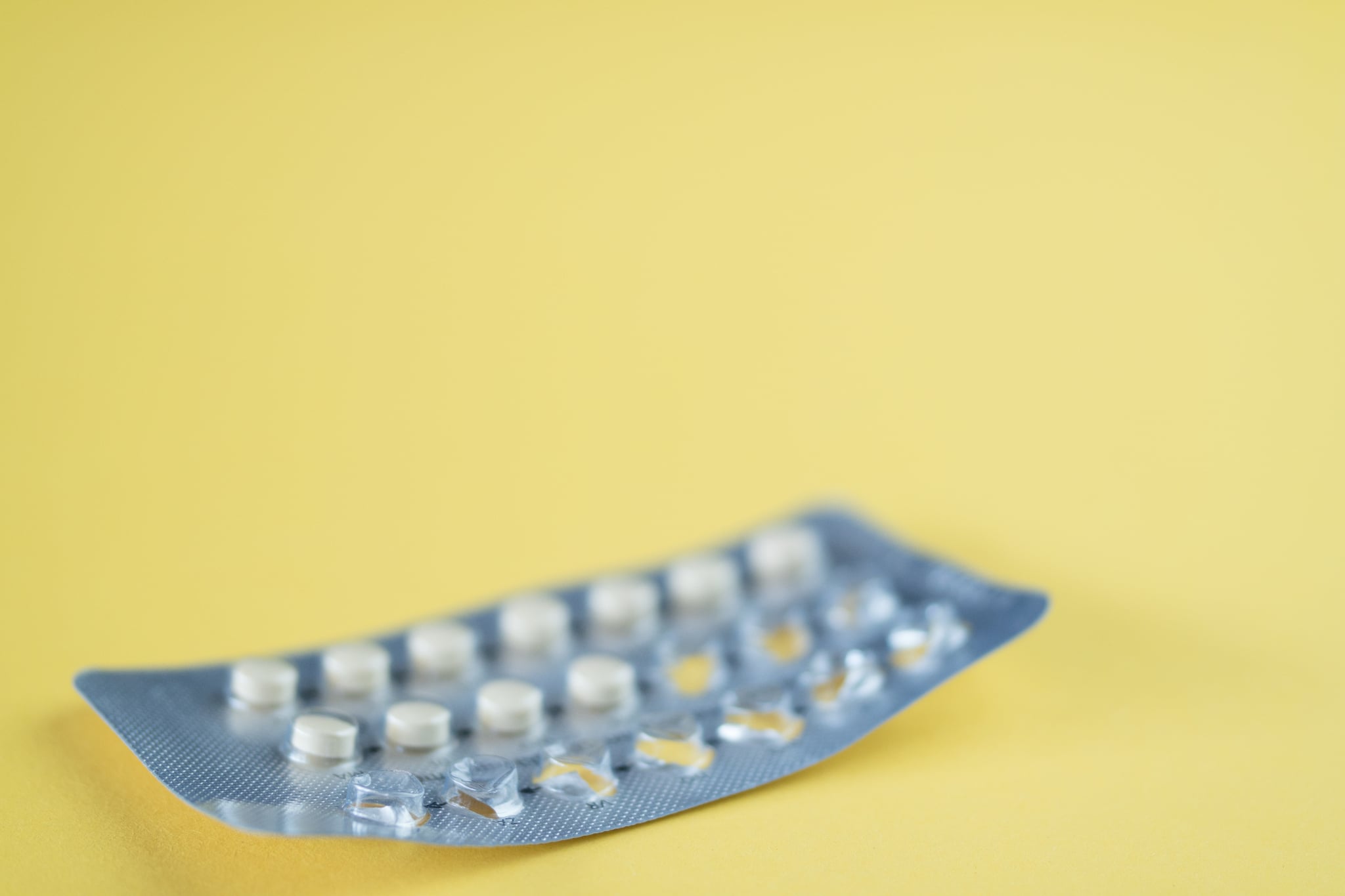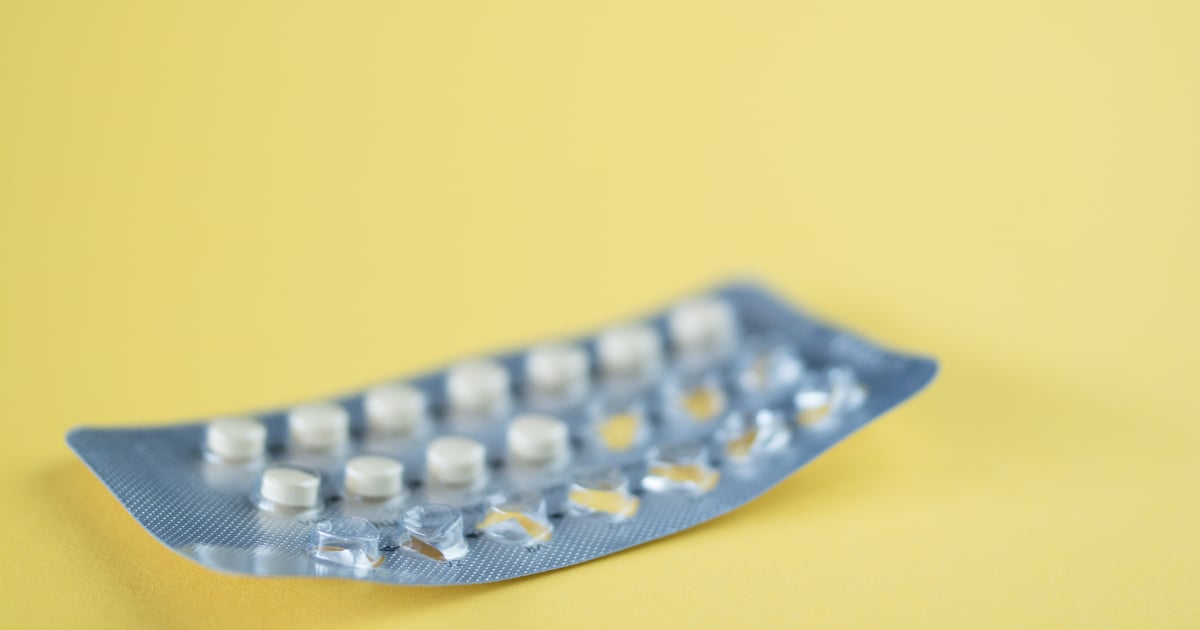Products You May Like
 From the pill to IUDs to implants, there are tons of birth control options out there. And in addition to preventing pregnancy, many hormonal birth control methods are used to tackle acne, blunt frustrating PMS symptoms, preempt migraines among other noncontraceptive benefits. But, as with any medication you take on the regular, you could be wondering what happens when you stop taking birth control.
From the pill to IUDs to implants, there are tons of birth control options out there. And in addition to preventing pregnancy, many hormonal birth control methods are used to tackle acne, blunt frustrating PMS symptoms, preempt migraines among other noncontraceptive benefits. But, as with any medication you take on the regular, you could be wondering what happens when you stop taking birth control.
Just like people’s reasons for taking hormonal birth control vary, so too will each person’s experience going off of it, notes Lyndsey Harper, MD, OB-GYN, and founder CEO of Rosy, an online platform offering a holistic approach to sexual health and wellness. Nonetheless, there are common side effects and changes to be aware of.
Truthfully, birth control doesn’t stay in your system for long once you stop taking it. The active hormones from hormonal birth control exit your body within 36 hours, according to the Cleveland Clinic. That said, you might still experience symptoms like headaches, hair loss, mood swings, anxiety and depression, acne, blood sugar dysregulation, digestive upset, and irregular or missed periods — what’s sometimes referred to as post-birth-control syndrome — within the first four to six months after discontinuing hormonal birth control.
Here’s everything you need to know about what happens when you go off birth control, as well as the potential side effects of stopping birth control even after prolonged use.
What Happens When You Stop Birth Control?
Whether you’ve already stopped hormonal birth control — which includes not only the pill but also some IUDs, the shot, rings, and implants — or you’re considering making the leap, it’s reasonable to expect a transition phase in which your body is affected holistically. Here are a few side effects that might happen when you stop taking birth control, according to experts.
It May Take a Bit for Your Cycle — and Fertility — to Come Back
Hormonal birth control is often billed as a way to “regulate your cycle,” but the fact of the matter is it actually prevents pregnancy by shutting down your cycle, points out Jolene Brighten, ND, board-certified naturopathic endocrinologist and author of “Is This Normal? Judgment-Free Straight Talk about Your Body“.
“The birth control pill is designed to stop your ovaries from ovulating,” says Dr. Brighten. “To do that, it delivers a steady dose of hormones that prevent the brain-ovarian communication necessary for ovulation.” By comparison, during a normal menstrual cycle, you’ll experience rises and dips in various hormones.
Given the transition between the hormones you’re receiving from the pill to your body’s own hormone production, it’s common to experience irregular periods for a few months after stopping hormonal birth control, notes Michael Green, MD, an ob-gyn at Winona, a female-founded anti-aging wellness center. “Your cycle may be longer or shorter than usual, or you may skip a period altogether.” In general, “your cycle can take several months to return to normal,” he says.
Once your cycle does resume, you can get pregnant (perhaps even faster than you think), which is why all experts here encouraged instituting other preventative measures (like using condoms) immediately if you don’t want to conceive.
Dr. Brighten recommends tracking your cycle, which can offer valuable information on fertility as well as your hormonal and overall health. “Two apps that work quite well for fertility purposes are Natural Cycles and Daysy,” she notes.
Your Period Might Get Heavier
Many people go on hormonal birth control to curb heavier periods. “Depending on the type of hormonal birth control you were on, your periods may have gotten lighter or even gone away completely,” points out Dr. Harper.
But once you go off of hormonal birth control, you will likely notice a return to slightly heavier cycles. If you were on the pill, you may also notice the return of other cyclic changes that were blocked by oral contraceptives, like cervical mucus (which you’ll notice as extra discharge) that happens with ovulation.
If you’re going off of a hormonal IUD, it bears noting that they do not prevent ovulation, so many times your mid-cycle symptoms — such as cramps from ovulation (or mittelschmerz) and cervical mucus — will be the same, says Dr. Harper. “However, both hormonal IUDs and the implant tend to make the bleeding of a period lighter or even absent, so there will likely be an increase in bleeding amount when discontinuing those,” she notes.
Your Sex Drive Could Be Affected
Hormonal birth control increases levels of sex hormone binding globulin (SHBG), which can actually suppress your sex drive. (Yep, it’s actually working to prevent pregnancy on two levels!) “It is believed that the elevation in this protein is one reason why women experience a low libido as it can bind testosterone,” points out Dr. Brighten, since testosterone is highly intertwined with sex drive and function. Plus, “testosterone production is diminished while on the pill, so increased levels of SHBG means there’s even less to go around,” she adds.
But stopping birth control — and ensuring you’re practicing other healthy lifestyle habits, like eating a healthy diet — can help you regain your sex drive. Dr. Brighten says increasing dietary zinc, adding anti-inflammatory foods like turmeric and ginger, and trying the adaptogenic herb maca may be helpful for boosting libido.
Your Mood Could Soar or Dip
Hormonal birth control is generally made with synthetic versions of estrogen and progesterone (called progestin). Because there’s such a strong connection between hormones and brain function, synthetic hormones might be affecting your brain differently than hormones that are produced by the body. A 2019 paper in Current Psychiatry Report looked at the effects of oral contraception on people’s moods and concluded that the pill is linked to mood-related side effects, especially for people who’ve experienced depression in the past. That said, going off of hormonal birth control could lead to a brighter outlook for some.
Others who might have experienced mood-related symptoms — particularly before and during their period — prior to going on hormonal birth control can expect them to return when they go off birth control, says Dr. Harper. However, “hormonal IUDs do not stabilize these mood changes, so there may be little to no difference in mood symptoms with discontinuation of those,” she notes.
You Might Experience More Breakouts
With your body’s own hormone production coming back “online,” you could experience an increase in oil production, inflammation, and pimples when you’re curbing any form of hormonal birth control, says Monica Grover, MD, a double board-certified gynecologist at VSPOT. Basically, expect any acne you experienced pre-birth control to resume. If you’re worried about acne after stopping birth control, consult with your doctor or a dermatologist to see what you might be able to do to help.
PMS and Period Symptoms May Pop Back Up
If you experienced period-related breast tenderness or pain due to normal cycle fluctuations, Dr. Harper says it’ll usually return once you stop hormonal birth control.
Headaches are a bit different in that, for some people, birth control prevents menstrual migraines while for others hormonal contraceptives can increase headaches, points out Dr. Harper. That said, whether or not you’ll experience headaches after going off of birth control is especially individual.
If you were put on hormonal birth control to manage a condition like PCOS, endometriosis, or severe cramps, you can also expect those symptoms to return when you go off birth control.
You May Experience Other Miscellaneous Changes
It’s common to experience other miscellaneous side effects, such as changes to your hair and weight, when you come off of hormonal birth control, says Monte R. Swarup, MD, FACOG, a board-certified ob-gyn in Chandler, AZ.
Your body retains less fluid when you go off of these forms of birth control, explains Dr. Swarup. For that reason, you might notice that your weight goes down, especially within the first one to three weeks, he notes.
You could also experience a type of hair shedding called telogen effluvium, which can occur as a result of the hormonal fluctuations you experience after going off of birth control. You can expect your hair to return to its previous pre-birth control condition within a year after discontinuing use, says Dr. Swarup.
What to Discuss With Your Doctor Before Going Off of Birth Control
Before putting the brakes on your hormonal birth control, experts advise bringing up the following with your healthcare provider.
If you want to conceive, talk about the next steps.
“In general, it’s possible to get pregnant immediately after stopping hormonal birth control, although the likelihood of pregnancy depends on several factors, including your age, overall health, and fertility,” points out Dr. Green. He recommends going over your specific goals with your doctor so that together you can pinpoint the best path forward for trying to conceive.
Go over lifestyle measures that can support your transition off birth control.
You can stop taking hormonal birth control anytime you like, says Dr. Brighten. But “if you were prescribed birth control for symptom management, consider discussing other options with your doctor,” she advises.
In the meantime, she recommends managing symptoms by eating a nutrient-dense diet. Aiming for plenty of fiber, quality fats, and protein can have a lot of benefits on both ovarian hormones and adrenal health, says Dr. Brighten. “Foods rich in magnesium, like leafy greens, can help with PMS, cramps, and mood symptoms,” she notes.
You’ll also do well to sleep in a cool, dark room and expose yourself to sunlight (natural or artificial) when you wake up. “Tending to your circadian rhythm is helpful for optimizing cortisol and supporting ovulatory cycles,” says Dr. Brighten.
Ask about your options for unplanned pregnancy.
Given the overturn of Roe v. Wade and increasing restrictions on abortion in many states, “it’s important to discuss personal concerns, questions, and alternative options, including efficacy rates,” says Dr. Harper. “We are at a concerning time where the trend to discontinue hormonal contraception is colliding with even more limited access to reproductive choice options so being fully informed about your available choices is of the utmost importance.”
Image Source: Getty Images / Lina Bruins / EyeEm
